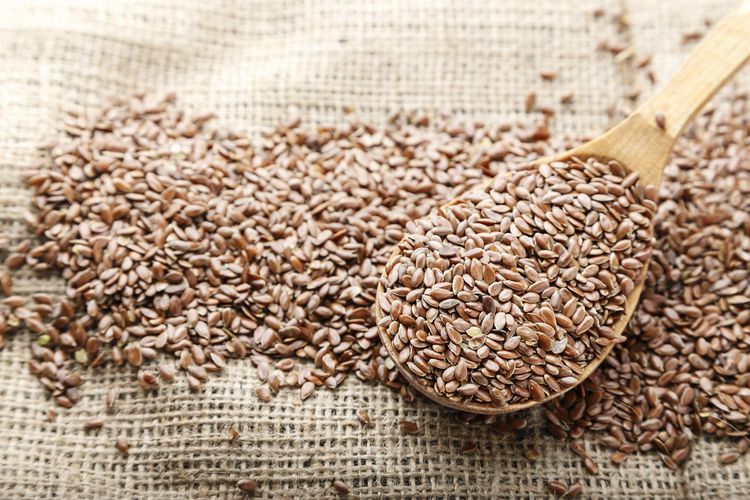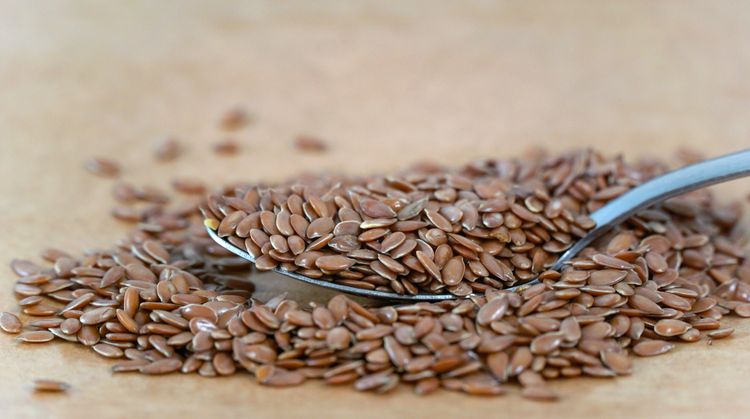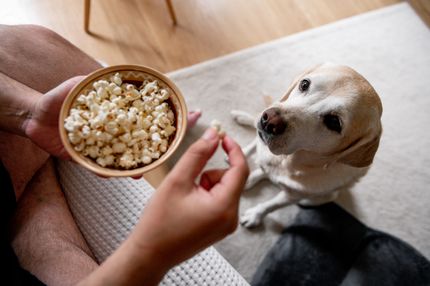You may be wondering if flaxseed is good for your dog and how you can safely incorporate it into their diet. Flaxseed is known for its health benefits and is becoming increasingly popular as a dietary supplement for dogs. In the following texts, you will find everything you need to know about the most frequently asked questions about flaxseed and dogs. From the question of whether dogs are allowed to eat linseed at all, to the health benefits and possible risks - we have compiled the answers for you.
Can dogs eat linseed?
Yes, dogs can eat flaxseed. Flaxseed is often considered a healthy supplement for dogs. However, it should be noted that flaxseed must be given in moderation and under certain conditions. If your dog has never eaten flaxseed before, it is recommended to start slowly with small amounts and observe the dog's reaction. Whole linseeds can be difficult to digest, so it is better to give them ground. Your dog can be given flaxseed in their normal food as well as in treats.
Are linseeds healthy for dogs?
Flaxseed is healthy for dogs. It contains many beneficial nutrients such as omega-3 fatty acids, fiber and lignans. Omega-3 fatty acids are good for your dog's skin and coat and can reduce inflammation. Fiber promotes healthy digestion and can help with constipation. Lignans have antioxidant properties and support the immune system. If you give your dog flaxseed, he will benefit from these health benefits.

How much linseed can I give my dog?
The amount of linseed that can be given to a dog depends on its size. In general, it is recommended to give small dogs about half a teaspoon and large dogs up to a tablespoon per day. It is important to start slowly and gradually increase the amount to ensure that your dog tolerates the flaxseed well. If there is any uncertainty, it is recommended to consult a vet to determine the right amount for your dog.
Are there any risks or side effects when dogs eat flaxseed?
Yes, there are some risks and side effects when dogs eat flaxseed. The most common side effects include gastrointestinal discomfort such as diarrhea or bloating, especially if too much flaxseed is given at once. Some dogs can also have an allergic reaction to flaxseed. Signs of an allergy can include skin rashes, itching or stomach problems. In addition, if flaxseed is not stored properly, it can become rancid and be harmful to your dog. It is therefore important to store linseed in a cool, dry place and to make sure it is fresh.
What are the benefits of linseed for dogs?
- Linseed offers many benefits for dogs. The most important benefits include:
- Improvedskin and coat: the omega-3 fatty acids in flaxseed can make your dog's coat shinier and reduce skin problems.
- Healthy digestion: The fiber in flaxseed promotes healthy digestion and can help with constipation.
- Anti-inflammatory effect: Omega-3 fatty acids can reduce inflammation in the body, which is particularly helpful for dogs with arthritis or other inflammatory conditions.
- Immune systemsupport: The lignans in flaxseed have antioxidant properties that can boost the immune system.

Should I give my dog ground or whole linseed?
It is recommended to give ground flaxseed to dogs. Whole linseeds can be difficult to digest and the nutrients may not be fully absorbed. Ground flaxseed is easier to digest and the nutrients can be better absorbed by your dog's body. You can either buy the linseed already ground or grind it yourself at home. It is important to keep the ground linseed fresh as it can quickly become rancid.
Does linseed help with constipation in dogs?
Yes, flaxseed can help dogs with constipation. The fiber in flaxseed promotes healthy digestion and helps regulate bowel movements. If your dog suffers from constipation, adding flaxseed to his diet can stimulate bowel movements and soften stools. It is also important to ensure adequate hydration, as fiber needs water to be effective. Start with a small amount and increase it if necessary to achieve the desired effect.
Flaxseed can be a valuable addition to your dog's diet if used correctly. They offer numerous health benefits, from improving the skin and coat to aiding digestion. However, it is important to pay attention to the correct dosage and possible side effects. Always start with small amounts and monitor your dog's reaction to make sure they are tolerating the flaxseed well. If you are unsure, it is best to consult a vet. When used correctly, flaxseed can make a positive contribution to your dog's health and well-being. Your dog will thank you for it!




















